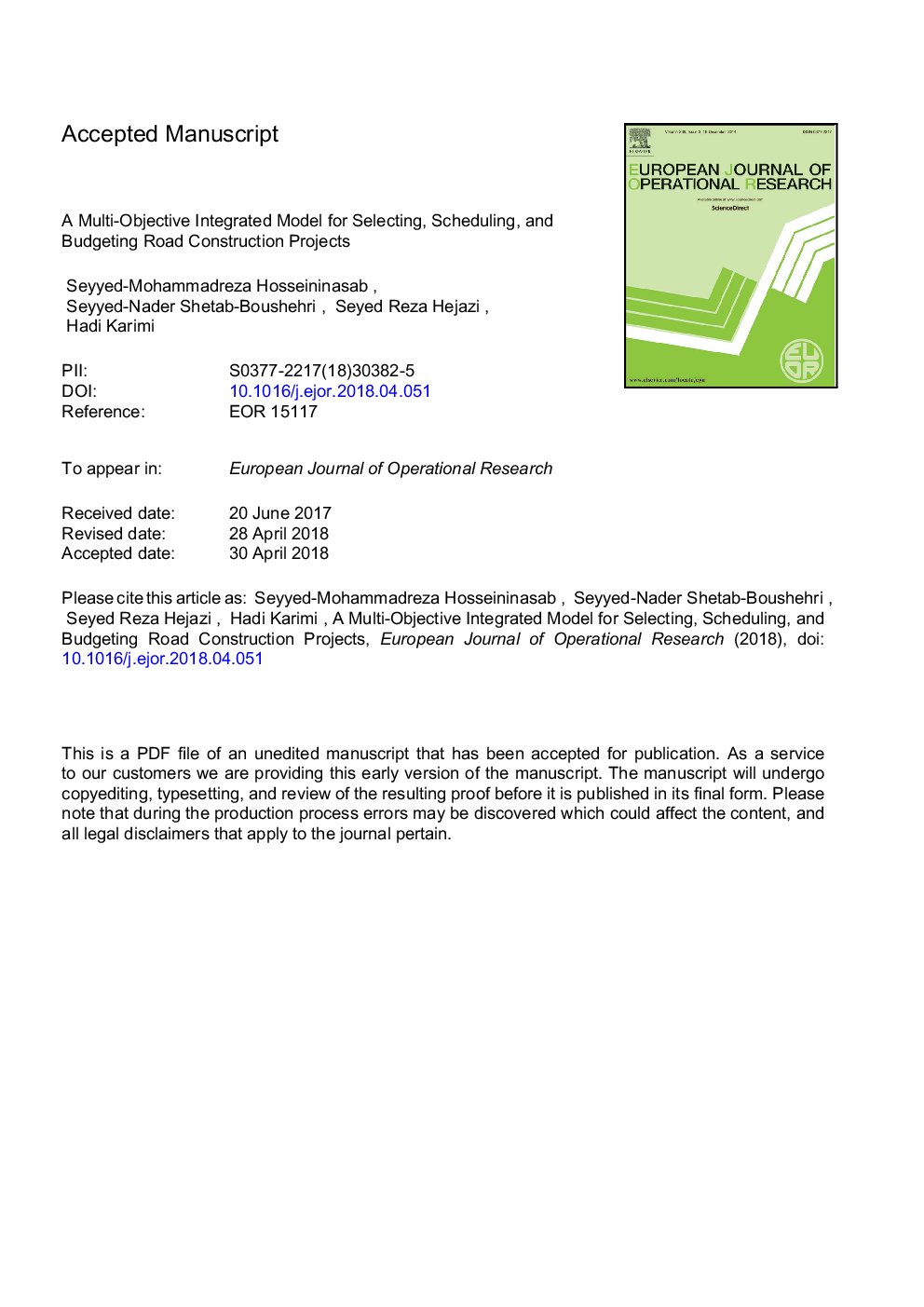| Article ID | Journal | Published Year | Pages | File Type |
|---|---|---|---|---|
| 6894505 | European Journal of Operational Research | 2018 | 39 Pages |
Abstract
In this paper, an integrated âmodel for selecting, scheduling, and budgeting urban road construction projects is introduced as a âmulti-objective time-dependent âbi-level network design problem. Three criteria are considered as upper-level objective functions: total travel time, user satisfaction over time, and spatial âequity. Two new measures are developed to âassess network design scenarios from the perspectives of user satisfaction over time and spatial âequity. Given the great complexity of the intended problem, two multi-objective evolutionary approaches (an interactive and a-posteriori) are proposed to solve the model in a reasonable time. These two approaches are novel combinations of âdifferent techniques, such as: Genetic Algorithm (GA), Non-dominated Sorting Genetic Algorithm (NSGA-II), Frank-Wolfe algorithm, âordered logit model, and knees identification algorithm. Computational results for various test problems âshow that proposed approaches have acceptable performance in terms of bothâ solution quality and âsolution time.â âTo show applicability of the proposed approach in large-sized networks, it is applied to a real case on Isfahan City in Iran.
Related Topics
Physical Sciences and Engineering
Computer Science
Computer Science (General)
Authors
Seyyed-Mohammadreza Hosseininasab, Seyyed-Nader Shetab-Boushehri, Seyed Reza Hejazi, Hadi Karimi,
